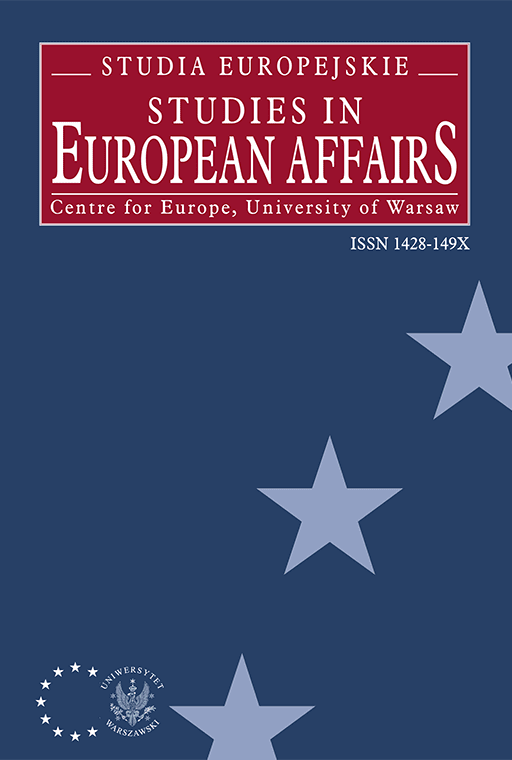
ISSUE: 1/2011
- Volume 57
- Number 1
- 2011
Subscribe NEWSLETTER
Studia Europejskie –
Studies in European Affairs
ISSN: 1428-149X
e-ISSN: 2719-3780
License
Articles published in the journal are under a Creative Commons Attribution – Non Commercial – No Derivatives 4.0 International License
Sytuacja geopolityczna Polski po przemianach ustrojowych i wstąpieniu do Unii Europejskiej
Geopolitical position of Poland after the system transformation and integration with the European Union
Abstract
After the Second World War Poland went through three different geopolitical situations. Firstly, Poland was militarily and economically dominated by the Soviet Union, took part in the Warsaw Pact and in the Council for Mutual Economic Assistance. The transition process that started in 1989 completely changed the entire political and military situation of the country. Poland redefined its foreign relationships. The number of our neighbouring countries also increased from three to seven. Poland tried to introduce a non-alignment policy.
Following the accession to NATO and to the European Union, the role of Poland increased significantly. Poland is the sixth country in the EU population-wise and has an influence on common decisions. The country created new internal and external policies. Poland has also attempted to change its historical geopolitical position between Germany and Russia. Germany and Poland are members of NATO and EU together. Poland tries to emphasise its EU member position in the mutual relations with Russia. Poland is doing its best to maintain peace and good-neighbourly cooperation in Europe. The country has a vision of peace and freedom in the Central-Eastern European region that in the past just too often fell
victim to conflicts and foreign domination.
Language: Polish
Pages: 19-40
How to Cite:
Harvard
Łastawski, K. (2011) "Sytuacja geopolityczna Polski po przemianach ustrojowych i wstąpieniu do Unii Europejskiej". Studia Europejskie – Studies in European Affairs, 1/2011, pp. 19-40.